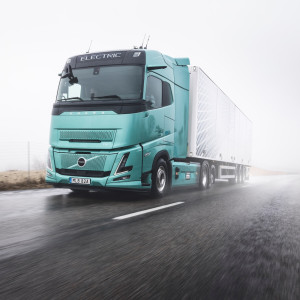Volvo FH Aero Electric launches with 600 km range


Volvo Trucks is rolling out its latest electric flagship, the FH Aero Electric, which it claims could be a game-changer for long-haul transport. With a promised range of up to 600 kilometres and a rapid charging time of around 40 minutes, Volvo is positioning this truck as the future of emissions-free trucking. Set to officially launch in late 2025, the FH Aero Electric is being unveiled in stages, with customers invited to sign letters of intent to place orders.
The truck is designed to tackle the heavy-duty segment, a major contributor to CO2 emissions and one that has so far proven difficult to electrify - until now, Volvo suggests. "This is a real breakthrough in zero-emission transport. Now, transport companies can operate really long distances with electric trucks without having to compromise on productivity," said Roger Alm, president of Volvo Trucks.
He points to the FH Aero Electrics's fast-charging capability and high payload capacity as key selling points. But while the numbers sound impressive on paper, real-world performance remains to be seen. The truck supports both the upcoming MCS (Megawatt Charging System) and CCS2 charging up to 350kW, allowing a charge from 20% to 80% in about 40 minutes.
That's assuming, of course, that operators can easily find charging stations capable of delivering that kind of power - something that remains a major challenge across Europe and certainly the UK. The new FH Aero Electric, configured as a 6x2 tag axle, can operate at 44 tonnes in the UK and 46 tonnes in Ireland when paired with a standard tri-axle semi-trailer. Its new e-axle technology makes space for up to eight batteries, delivering a hefty 780 kWh of installed capacity.
Volvo touts its experience in electric trucking, stating it has been supporting customers in their transition for over five years. "Volvo Trucks is the go-to company for transport operators that want to start their decarbonisation journey," Alm adds. That all sounds promising, but the real test will come on the road. Can operators realistically make the switch without major compromises?
And will infrastructure keep up?